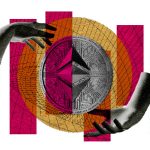Ripple CTO David Schwartz has stepped ahead to handle a crucial discourse surrounding XRP Ledger. In response to tweets, Schwartz makes the case that XRP Ledger not solely meets however exceeds the foundational standards of blockchain know-how.
The talk over what constitutes a “true” blockchain has been a contentious one, with purists and innovators typically at odds.
On this regard, XRP’s classification as a blockchain stays a topic of dialogue, with critics pointing to numerous features of XRP Ledger, together with its distinctive consensus mechanism, as causes to doubt its standing as a decentralized blockchain. XRP Ledger makes use of a singular consensus algorithm known as the Ripple Protocol Consensus Algorithm (RPCA), which depends on a gaggle of trusted validators to authenticate and validate transactions.
In a single such discourse, an X person claimed that XRP was not a blockchain however somewhat a distributed ledger. The X person additionally said that as a result of transaction hashes are linked, it could possibly be “known as” a blockchain, however it was totally different from conventional proof-of-work (POW) or proof-of-stake (POS) decentralized blockchains.
I feel XRPL meets the definition of a blockchain. But when individuals need to disagree, that is cool too.https://t.co/RUbEAiXbQu pic.twitter.com/zZwMeEFczW
— David “JoelKatz” Schwartz (@JoelKatz) March 31, 2024
Schwartz, one of many authentic architects of XRP Ledger, maintains that XRPL meets the definition of a blockchain. To again his assertion, Schwartz shares a screenshot of a press release from certainly one of his earlier weblog entries from 2018, through which he outlined what a blockchain is.
In accordance with Schwartz, “A blockchain is a collection of states of a distributed ledger the place every state, besides the primary, incorporates a safe reference to the prior state and enough info to display that the transition from that prior state is legitimate in line with the system’s guidelines.”
Alternatively, a distributed ledger is a database that has no single authoritative copy. That’s, the integrity of the information doesn’t depend upon the supply of the information however on the contents of the information.
Regardless of Schwartz’s clarification, some critics are prone to stay skeptical of XRP’s classification as a blockchain, which he seems detached to, saying, “But when individuals need to disagree, that is cool too.”





